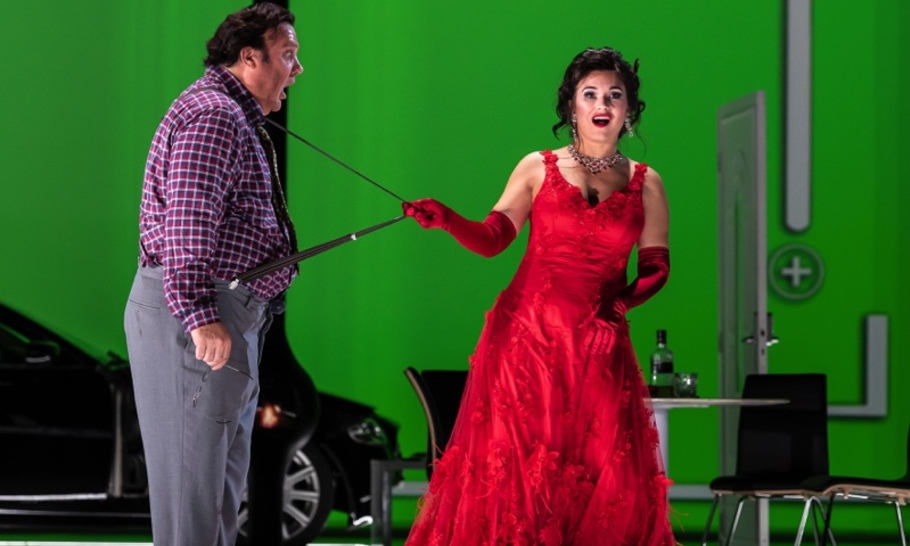The Royal Opera's new production of Donizetti's comic masterpiece is a musical delight

This new production of Don Pasquale got off to a flying start in the overture, with low lighting in the auditorium and no stage business to detract from the lively charm of Evelino Pidò’s conducting.
As the auditorium lights go down we are in the household of ageing bachelor Don Pasquale, whose heir and nephew Ernesto has rejected the wife his uncle has chosen for him. Pasquale has therefore decided to find a wife for himself and cut Ernesto out of the will, but his friend Doctor Malatesta decides to teach the old boy a lesson. A fake marriage to Malatesta’s sister — supposedly fresh out of the convent, but in reality Ernesto’s beloved Norina — will cure him, as her apparently demure nature is turned into that of a harridan and spendthrift, leaving Pasquale desperate for a way out.
The plot is straight from Ben Johnson’s seventeenth century play The Silent Woman , and in Donizetti’s experienced hands it is a delight. Oddly enough, it fell out of Covent Garden’s repertoire for thirty years before the Royal Opera produced it in 1973 with Geraint Evans as Pasquale, and this time another Welsh bass-baritone took on the title role. Bryn Terfel was outstanding, and his superb theatricality and comic timing was a key ingredient in giving Pasquale a gently humorous touch. With Russian-German soprano Olga Peretyatko as his ‘wife’ Norina, he met his match — teasingly shy at first, but a flirtatious and determinedly sexy minx after her ‘marriage’, she almost stole the show. As Malatesta, Austrian baritone Markus Werba was a thoroughly engaging presence, and Romanian tenor Ioan Hotea sang the high role of Ernesto well, but one was left to wonder what Norina might see in him. Vocally, however, a great team, and the quartet at the end of Act 2 was beautifully sung.
The production by Damiano Michieletto and his team opened in Paris in March, and it gives a fresh look to an opera that can sometimes appear slightly heavy, as it takes place in the house of a miserly older man. In this staging lighting strips mark out the house, chimney and carport for a 1960s Lancia that Norina replaces with a smart new black Maserati, as soon as she takes charge of everything. Despite the bright outlines, Alessandro Carletti’s lighting allowed subtle changes that gave an air of irreality to the story at times, and the use of small children, and even muppets in one scene, seemed designed to emphasise the family aspects of this drama along with Donizetti’s tender and compassionate approach to a family tyrant. Michieletto is the director whose William Tell in 2015 caused boos and disappointment, but his Cav and Pag was far better received, and this looks like a keeper.
Beautifully gentle and sensitive conducting by Maestro Pidò, and memorable performances by Terfel and Peretyatko. Continues until November 2, with a live cinema relay on October 24 — details here .





